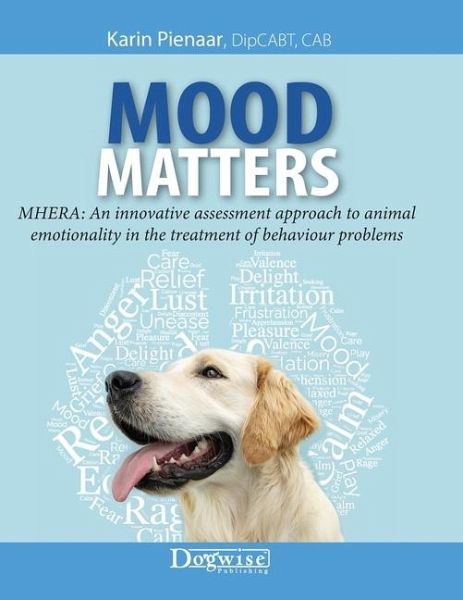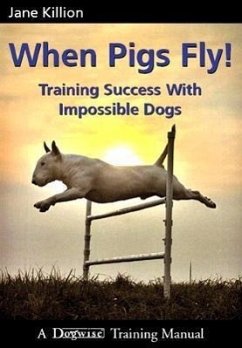
Mood Matters - MHERA
An innovative assessment approach to animal emotionality in the treatment of behaviour problems

PAYBACK Punkte
10 °P sammeln!
"MHERA has proven to be a method that can easily be applied to a host of mammalian, avian and reptilian species. It has been used successfully not only in companion animals, but also by professionals who work in all aspects of animal care including veterinary practices, zoos and aquariums. It is an intuitive and flexible science-based protocol that enables the animal professional to evaluate animals as individuals, which not only allows for a more targeted treatment approach, but also a more successful one that is centred around the animal's emotional and behavioural well-being. How the book i...
"MHERA has proven to be a method that can easily be applied to a host of mammalian, avian and reptilian species. It has been used successfully not only in companion animals, but also by professionals who work in all aspects of animal care including veterinary practices, zoos and aquariums. It is an intuitive and flexible science-based protocol that enables the animal professional to evaluate animals as individuals, which not only allows for a more targeted treatment approach, but also a more successful one that is centred around the animal's emotional and behavioural well-being. How the book is organized In the first two chapters of the book, we explore some of the fascinating science involved in animal emotion, focusing on the work of Panksepp and Mendl. A brief overview of the importance of core emotions is included here, and we look at how animal emotionality impacts the ethical treatment of animals, particularly when it comes to welfare. Chapter 3 focuses exclusively on MHERA, giving the reader an in-depth introduction to the subject. It includes discussions of how MHERA works and the essential rationale behind the inclusion of mood state assessments, cognitive bias and emotional assessment in behaviour therapy. We also look at reinforcement, how reward is defined, and compare the concepts of 'liking' vs 'wanting,' with case study examples of the MHERA tenets in practice, making up Chapters 4 through to 8. In Chapter 9, the book's conclusion, the role of consent and its influence on MHERA's conception is highlighted"





![Rations for Dairy Cows and Other Matters of Interest to Dairymen [microform] Cover Rations for Dairy Cows and Other Matters of Interest to Dairymen [microform]](https://bilder.buecher.de/produkte/65/65603/65603371n.jpg)








